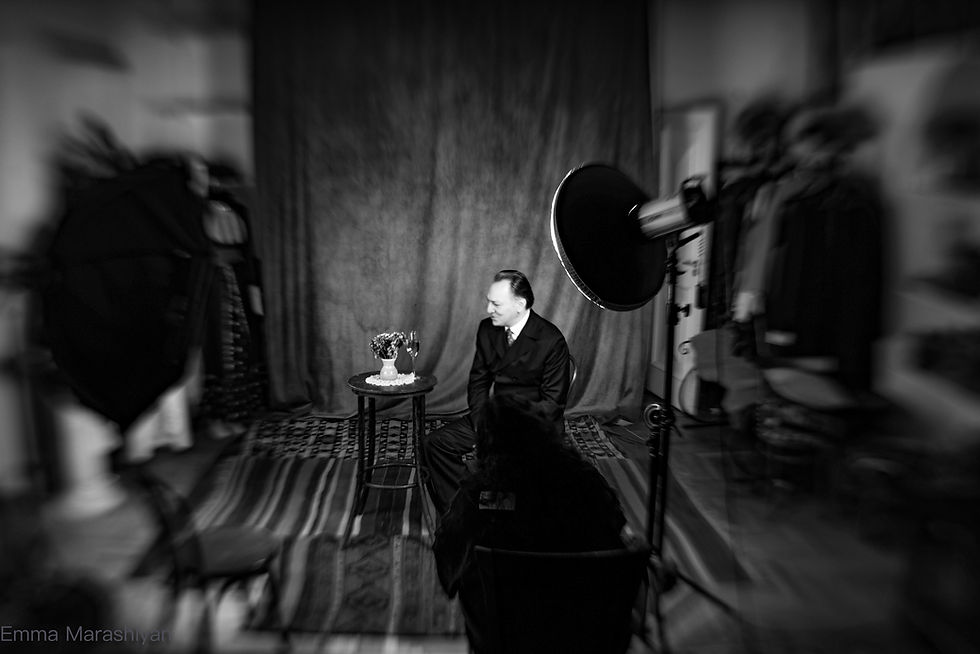REZA MIRKARIMI
- Thinking Portraits

- Aug 21, 2019
- 3 min read
"A humble man with a personality larger than the universe.
A man with stories to tell.
A person who represents ordinary people as extraordinary in films.
A man of a few words; taciturn, but meaningful.
A writer and a director who prefers looking at the bright side of a situation.
A down to earth person who makes movies
where every person sees a piece of them in the characters.
Modest, respectful, soft-spoken, good-natured."
THINKING PORTRAITS/INTRODUCTION

At the end of the day when I’m alone,
the things that are going to make me sleep at night are
my experiences and the new vision I found.
I strive to learn from new cultures and diversities.
If there’s nothing I achieved through making my film, it’s not enough.
I don’t find it satisfactory.
There’s a time and place for jealousy.
I try to associate it with its positive aspect because it can
be a good fuel to improve yourself, but you mustn’t get lost in it.
You should keep in mind what ground you stand on.
As a filmmaker, I don’t like any kind of censorship.
But in Iran, you learn how to create films within the limitations.
Censorship in Iran isn’t as dangerous as it is portrayed outside the country.
We make hundreds of feature films,
participate in many festivals and win awards. It’s a paradoxical situation:
how do we make such beautiful films in such conditions?
This leads to another question: how do we manifest our ideas in a creative way?
I think if I had made movies elsewhere,
I would have lost most of my experiences and ability to create films.

My father was my hero for the first part of my life.
When I was 17, I would read a lot of books
about western ideologies to learn more about the world because didn’t exactly do what an average 17-year old would do.
Soon, I discovered cinema and it gave me new heroes.
I found new worlds, worlds I couldn’t find in books.
In my films, I find my heroes among ordinary people.
The biggest act of my hero is doubt.
They don’t fix anything or save the day.
They have doubts about their lives, work, world and everything in between.
They are curious, and as a filmmaker, my biggest mission is to bring that
doubt into the screens and share it with the audience.

As a person who lives in the Middle East in the heart of all the wars, I try to be positive.
I tell myself it’ll get better.
I need the positivity to keep going on.
Privacy has a role when it comes to making movies.
When you create a film that meets the expectations of your audience,
you need privacy to make a movie for you.
You need to create something that shows a part of you that nobody has seen before.
Nationalism is an invalid value that is stuck in our heads. I say all this now but I forget all about it when I watch football.
I read about the history of Armenia before coming here.
We have a big Armenian community
in there and I have a lot of friends, so I didn’t feel like I left the country.
I feel very familiar. I see a lot of common cultural details like words and behavior.
Iranians and Armenians look very much alike, minus the scarf.
I feel like our people are the same.
I feel like I’m in Tehran.
EMMA MARASHLYAN/CONCEPT AND PHOTOGRAPHY
ANAHID AKKAM/INTERVIEWER



Comments